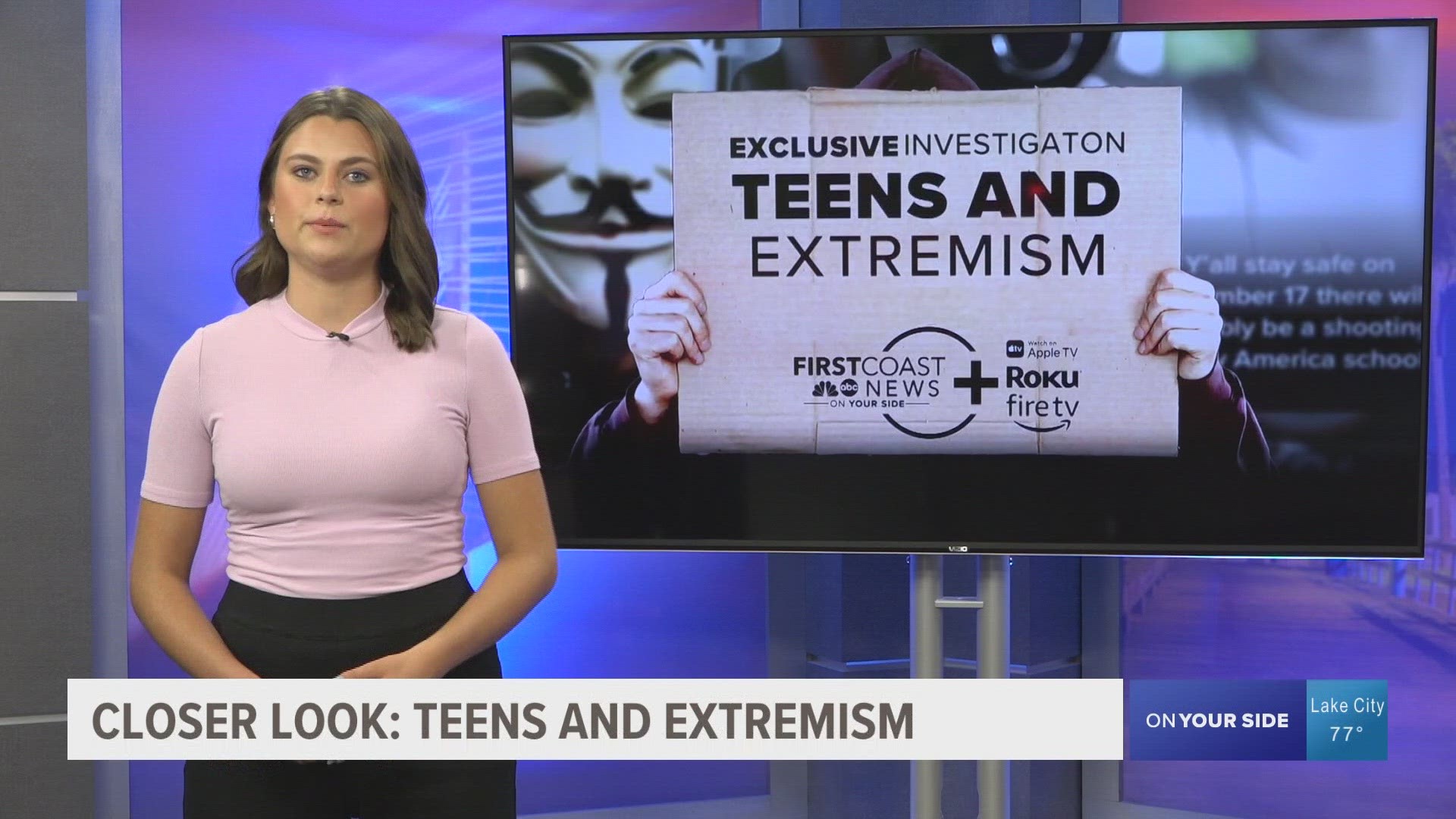JACKSONVILLE, Fla. — FBI Jacksonville says young people in North Florida are increasingly being targeted and encouraged to spread dangerous messages online.
Local and federal law enforcement says because content is more easily accessible, it is becoming easier for extremist groups and individuals to recruit kids online.
“People don't have to travel overseas, to radicalize or join a group. It can all be done through the internet, these violent extremists have such a wide audience that they can target now," FBI Jacksonville Assistant Special Agent in Charge Coult Markovsky said.
From consuming content online to posting on social media, Markovsky says the FBI is working proactively to end the spread of potentially harmful communication.
"Violence is increasing. We're seeing an increase in violence with our juveniles and young adults," Markovsky said.
He says extremists are seeking minors through online platforms and recruiting them to spread messages of hate and promote dangerous political and religious propaganda.
“We're seeing individuals, children, juveniles, young adults, are moving towards a path of violence, and sometimes are maybe plotting or planning to threaten their community or schools," Markovsky said. "Propaganda can be in the form of videos, violent videos, it can be in the form of some sort of written doctrine."
Markovsky says across the forty Florida counties covered by FBI Jacksonville’s field office, the threat is evolving. "I would say that we have seen an increase in young individuals that are consuming some of this violent propaganda. We're receiving that information and then we're working with our local partners to disrupt anything."
One of the FBI's local partners is the St. Johns County Sheriff’s Office.
“Juvenile extremism does affect us on the local level, we have had a handful of cases in St. Johns County," St. Johns County Sheriff's Office Lieutenant George Harrigan said. “It's not prevalent in our community, we don't deal with extremism issues like we see in certain other areas in our country, or even in the world."
Harrigan says details about individual juvenile cases are protected, but says they’ve seen networks both in and outside the U.S. contacting local minors through shared interests.
"Extremist views are not illegal," he explains. "It becomes a problem when there's some type of criminal intent to do harm or cause some type of mass destruction."
The FBI's Joint Terrorism Task Force and local law enforcement intervene, but an arrest is not always made. The focus is to prevent a violent act from occurring.
"These kids get so caught up in the behavior that sometimes they don't realize the magnitude of what it is," Harrigan added.
When law enforcement makes contact, they conduct interviews with the child and their family, and educate them about the dangers of their actions.
"Once that, that child juvenile or young adult has dealt with there are diversion programs that are things in place to help take that person from a path of violence and start working towards putting them in a better place as they move forward and their life," Markovsky said.
Markovsky says young people are vulnerable and there are warning signs.
“We have seen where they start acting out, they become withdrawn, problematic," he said. "Some children who are bullied or perceived to be bullied, they kind of retract, and they're spending a lot of time in their rooms without a lot of outside contact. And just the constant ingestion of being online.”
Harrigan says parents can help prevent extremism acts. "They have to understand technology, research technology, know how to use the apps and know what they're capable of. And that's a big help for prevention when it comes to extremis."
Markovsky says if you see something, say something.
"We as law enforcement always ask people that if they see something to say something, whether that's a concern parent, a child or anybody in the community that they see something that they perceive to be a threat to give us an opportunity to work through it and investigate it," Markovsky said.
Law enforcement says there isn't a specific social platform used by extremists to target young people, all media platforms are threatened. The FBI says the main priority is to protect the community from both domestic and international threats. If they receive credible information, they will contact local partners and school officials to make sure they are aware.

